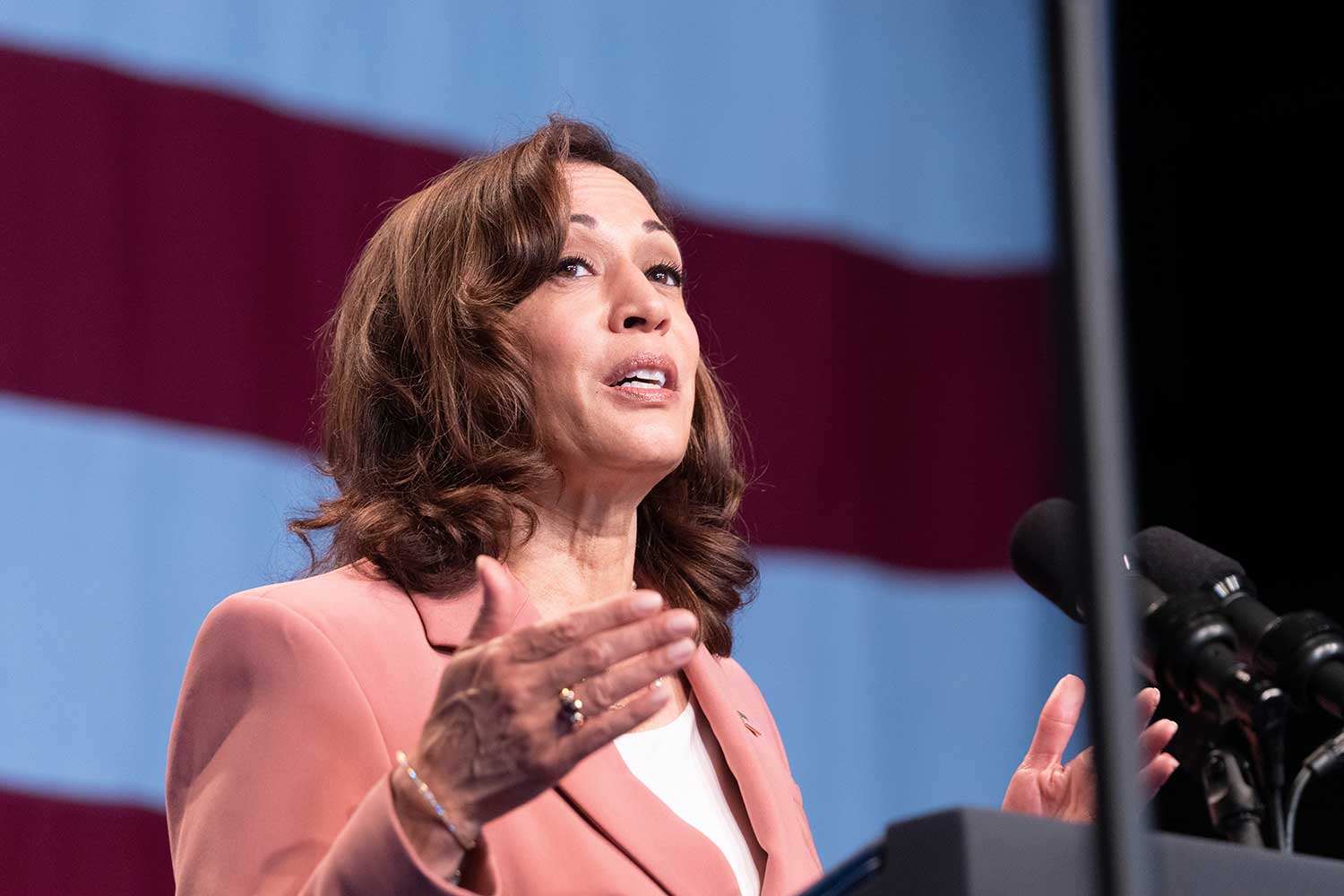Four days into her presidential campaign, Vice President Kamala Harris has, understandably, not yet announced her platform. While the consensus is that her positions will center on continuing the work of the current administration, advocates and analysts also see new potential: They believe the platform she ran on in the 2019 election and her history as a prosecutor signal that Harris could push U.S. climate policy even harder than President Biden has. “Nobody thought the climate crisis was going to get solved in four years,” says Holly Burke, communications director of climate change advocacy group Evergreen Action, one of several environmental groups that have already endorsed Harris.
Here are the key things to know about Harris’ record on climate change policy, and how that might translate to her platform.
Her fingerprints are on Biden’s signature climate law…
The Inflation Reduction Act (IRA) stands apart as the Biden-Harris administration’s gargantuan climate win, featuring the most spending on clean energy and decarbonization in U.S. history. Harris campaigned heavily for the IRA, she cast the deciding vote in the Senate to pass it, and she’s been a consistent and vocal champion of the programs it funds (though she has caught a bit of heat for touting the law’s supposed $1 trillion in spending).
But her influences also mark the legislation. For one, she has a history of driving government investments in electric vehicles, especially electric school buses—which, with her aid, became a prominent feature of the IRA. Her fingerprints are also on the IRA’s Greenhouse Gas Reduction Fund, which allocates $27 billion to helping disadvantaged communities adapt to and address the impacts of the climate crisis.
…and seeing it through is priority No. 1
The IRA represents a big step toward meeting the climate goals set by President Biden, but that job is still a work in progress. For one, he planned to cut U.S emissions in half by 2030, but is on track to get only 64% to 86% of the way to the finish line. And although his administration has made progress in reducing emissions through regulations on electric vehicles, power plant pollution, energy-efficient appliances, and more, there are still gaps to close in order to hit the goals of a zero-carbon electricity grid by 2035 and net-zero carbon by 2050.
With limited time to campaign, some politicos suspect that Harris will be unwilling to move far from Biden’s road map. Indeed, when asked if she would pursue policies like those she supported as a senator, Harris’ climate adviser Ike Irby told The New York Times that she would focus her efforts on implementing the Inflation Reduction Act.
She’s been more aggressive than Biden, but that’s no guarantee
During her bid for Democratic presidential candidacy in 2019, Harris’ climate platform was considerably to the left of Biden’s. It centered around a $10 trillion plan to cut greenhouse gas emissions and zero our emissions by 2045. A key (and contentious) element of the plan was a carbon tax, a mechanism that charges emitters for the planet-heating compounds they spurt into the atmosphere, and that some economists consider the best way to get corporations in check. She also promised to be tough on prosecution of fossil fuel companies, favored an end to fossil fuel subsidies and offshore drilling, and said there’s “no question I’m in favor of banning fracking”—a move Biden didn’t take.
She’s softened these positions since becoming VP, and it’s unclear if any of those stances will resurface in the refreshed election cycle. “I think [she] is sophisticated enough to appreciate the formula for how President Biden won the election and has kept large parts of industrial America and purple states in the Biden coalition,” Sasha Mackler, executive director of the energy program at the Bipartisan Policy Center think tank, told Semafor.
She’s got a history of going after polluters…
Many of Harris’ biggest climate flexes come from her time as the attorney general of California. In 2016, she launched one of the first investigations into Big Oil’s (in her case Exxon Mobil’s) efforts to mislead the public and shareholders about the risks of climate change, though the probe didn’t lead to a suit. In 2015, she sued Plains All-American Pipeline over a 2015 oil spill. She even went after the Obama-Biden administration over the Interior Department’s loose environmental assessment process for issuing fracking permits off the west coast. She also won an $86 million settlement from Volkswagen for cheating on diesel emissions tests. How much she might return to these tactics—or temper them—as the nation’s top executive is another open question.
…and prioritizing environmental justice
If there’s a common thread in Harris’ climate report card, it’s been in representing the interests of those who feel disproportionate impacts of polluters’ lackadaisical attitude toward the environment. As a senator from California, Harris co-sponsored the Climate Equity Act of 2020, a law that would have required lawmakers to consider the impacts of environmental legislation on marginalized communities. She also co-sponsored three other bills that focused on climate and environmental justice: the Water Justice Act, Environmental Justice for All Act, and Preparing Superfund for Climate Change Act of 2019.
“She’s someone who has really demonstrated for the last two decades of her career that she’s going to prioritize climate and justice for communities at every opportunity,” Evergreen Action’s Burke says. “We expect and are confident based on our conversations with her and her team, that she’s going to…raise the bar for that next level of how we continue to build a thriving, just, clean energy future.”

